The great dumbing down
While cleaning out some boxes the other day I came across one of my old school reports, from Kogarah High in Sydney in the late 1980s. I stopped mid-box. The simplicity of the single sheet of paper was stunning. Each subject had a simple letter A or B or C. Next to it a mark out of one hundred. Then a single line comment. All laid out on a piece of paper half the size of an A4 page. That’s all my mum had to read. Nothing like the spreadsheets of nonsensical jargon I had to decipher for my own kids, with boxes of letters from O, H, S, B and L and stages instead of classes and confounding phrases such as ‘student has ability to use language forms, features and structures of texts appropriate’ and so on. Speaking to my mother about this, she pulled out a report she happened to have inherited in an old photo album from one of my uncles, who attended Waverley College in the late 1950s. Again, it was a paragon of clarity, and the teachers had also gone to the trouble of including a class average out of a hundred, printed next to the student mark, which effectively told my grandmother whether he was ahead or behind his classmates.
It prompted my thinking about the simplicity of the alphabet system – and how it’s being mangled these days in service to a woke culture that’s forever complicating our lives. Canadian Prime Minister Justin Trudeau was rightly mocked after stumbling while virtue-signalling several weeks ago. ‘I will never apologise for standing up for LGDP… LGT…. LBT…’ he stammered through his speech. After a prompt off-camera, he continued ‘…LGBTQ2+ kids’ rights…’
Earlier this year the United Nations admonished Australians to add a plethora of two-letter and three letter-pronouns to sign off on our emails – suggesting tongue-twisting letter combinations worse than a cryptic cross-word puzzle: xe/zem, zie/hir and ey/em. How can this be viewed as anything else than an attempt to confuse us and set trip wires into daily lives?
In Canada, one woke university lecturer has argued there is such a thing as the ‘lowercase movement’ and declared capital letters are ‘symbols of hierarchy’. Only Indigenous references merit an upper case, she insisted. But her media release about the bold new declaration was rendered unreadable as a result.
And then there’s the contemporary art world, where normal letters, words and language conventions have been upended in a grand adventure to sound ever more edgy and subversive. Not content with ditching the tried and true practice of using capital letters at the start of sentences or for proper nouns, the latest fad is to insert random capital letters in the middle of words, like SymbioticA or metaPhorest. Some art organisations have gone for entire words in capitals – such as The WIRED Lab. Other experimental art companies have decided that’s obviously not clear enough so they’ve begun inserting random full stops in the middle of words, such as ‘fo.am’ and occasional brackets thrown in for good measure.
Art used to at least nod to beauty as an ideal, and take on board Plato’s famous dictum: ‘Beauty of style and harmony and grace and good rhythm depend on simplicity’. No longer. The latest craze is to culturally appropriate those confounding European little accents which sit above certain letters. Next year’s Sydney Biennale art festival is called rīvus – all naturally lower case, and now with its own special ‘macron’, or straight bar, above the word. Goodness knows what it actually signifies. Artists will no longer be taking part in the show – instead it will have ‘participants’. The blurb says the word rīvus is the Latin for stream and ‘will enable aqueous beings – rivers, wetlands and other salt and freshwater ecosystems – to share a dialogue with artists, architects, designers, scientists, and communities’. It’s so esoteric, nobody can say quite exactly what is going on. And that seems to be the point. Where confusion abounds, there’s no certainty and no one is accountable. But then that means art has lost its key ability to communicate something. According to La Trobe University’s Professor Peter Murphy, one of Australia’s great thinkers on public policy and social theory, Western societies have been on a downhill slide in terms of creativity, medical discoveries, productivity and the arts since the early 1970s. He cites declines in benchmarks of patents, inventions and key cultural works. In one of his papers, he documents how the percentage of key painters per population has fallen away over the past century, using data from inventories of key achievements from Charles Murray’s Human Accomplishment, among other sources. He also cites how Canadian author and economist Don Thompson, documented that, of one thousand artists with major gallery shows in London and New York in the 1980s, only twenty were later included in a Sotheby’s or Christie’s evening auction by 2007.
Professor Murphy says ‘the judgement of time on post-modern art has been severe’. And that’s the most telling yardstick of all. Art has to produce works of lasting significance to be called art, which is a bit difficult if it’s a ‘dialogue’ between eco-systems.
Back in the dim dark ages of the 1980s, when companies still invested in training programs, budding newspaper cadets were given lectures in simple English at News Corp. Always use concrete words over abstract words, we were told. Prefer the plain Anglo-Saxon word instead of the Latin-based one. Say hurt instead of injured, help instead of assist. They even had an elderly retired journalist, Harry Sheering, come and sit in the newsroom once a week and give us friendly lectures. By striving for clarity above all else you were putting the reader first, not anyone else, he used to say, including vested interests such as PR types, the police and politicians.
But today’s inversion of plain language and the blurring of boundaries and deliberate adoption of meaningless words is more akin to drowning the poor readers in a tin of Heinz alphabet soup.
Got something to add? Join the discussion and comment below.
Get 10 issues for just $10
Subscribe to The Spectator Australia today for the next 10 magazine issues, plus full online access, for just $10.
You might disagree with half of it, but you’ll enjoy reading all of it. Try your first month for free, then just $2 a week for the remainder of your first year.

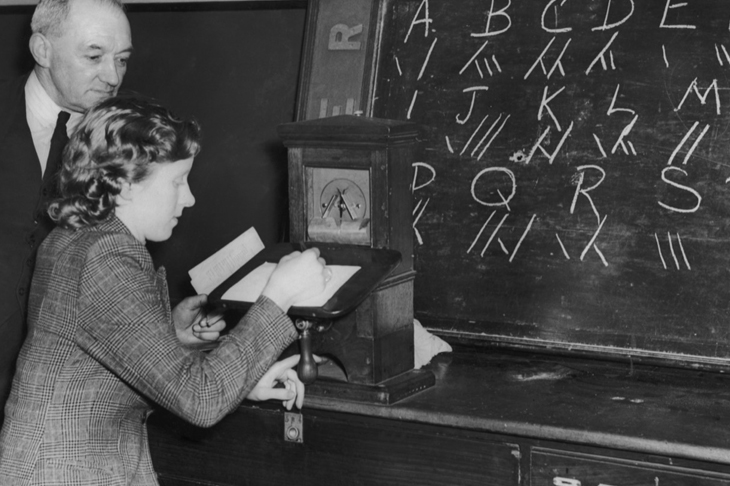
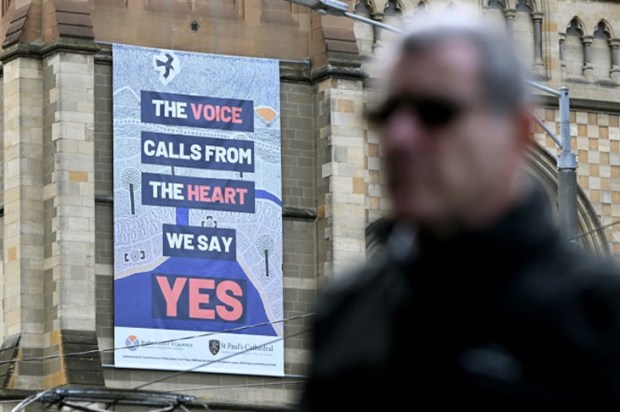
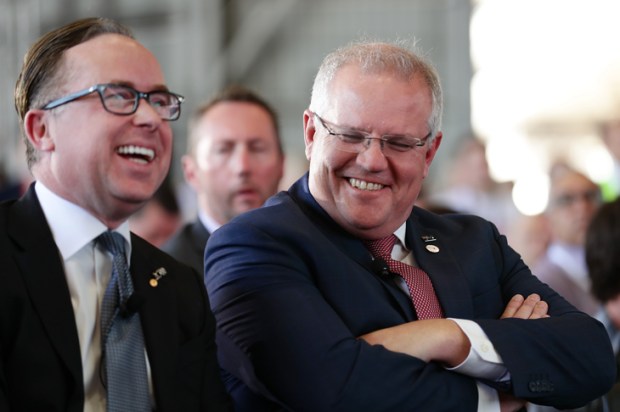
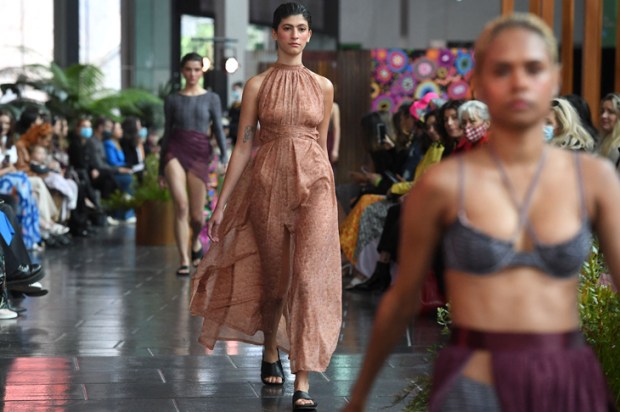
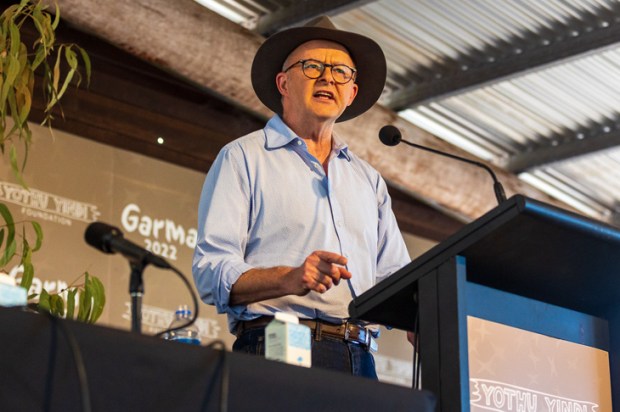

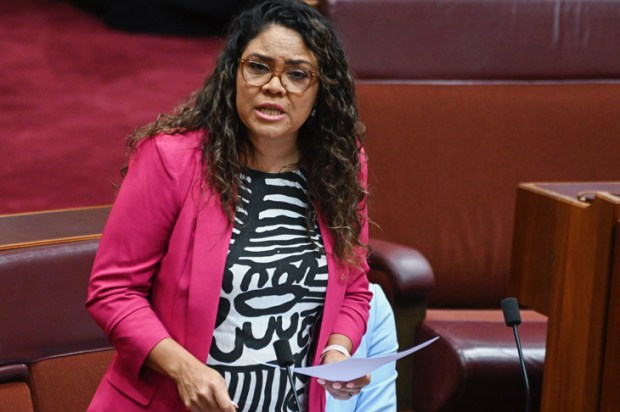






Comments
Don't miss out
Join the conversation with other Spectator Australia readers. Subscribe to leave a comment.
SUBSCRIBEAlready a subscriber? Log in